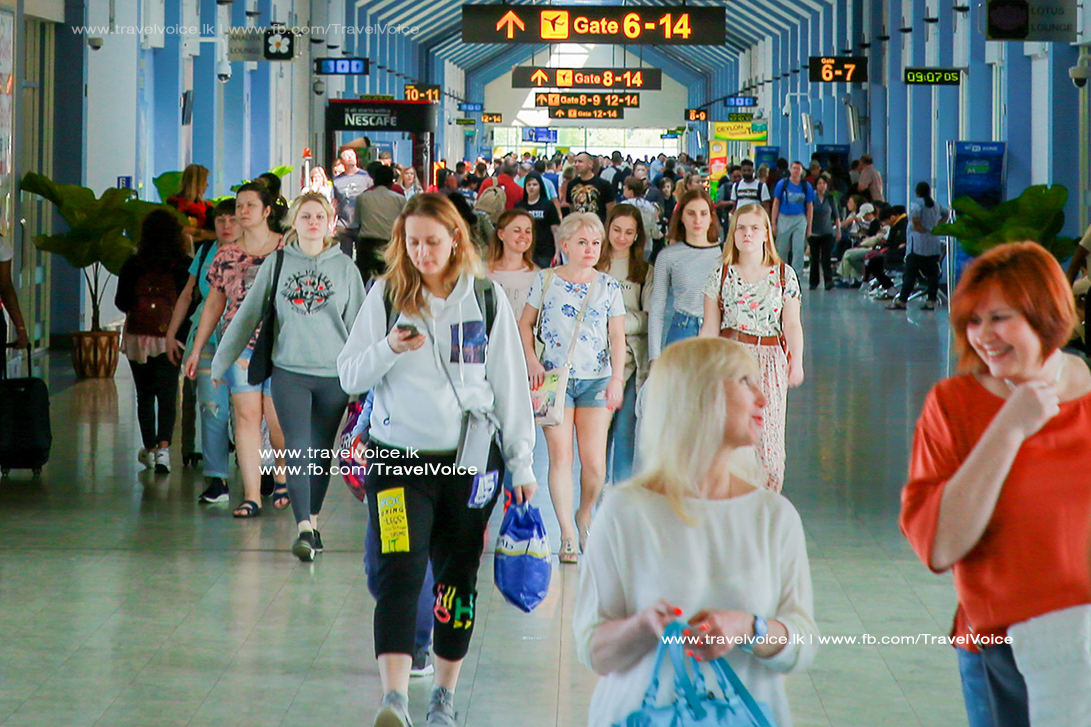He said the initiative aims to stimulate tourism and promote Sri Lanka as a preferred travel destination, aligning with the country’s goal of achieving 5 million tourist arrivals by 2030.
“Waiving visa fees could significantly enhance Sri Lanka’s appeal to international tourists, Highlights making decision-making process easier based on concession offered. We have missed a lot of opportunities for tourism; by waiving visa fees for tourists, destinations enable travellers to allocate their budget towards experiences, accommodations and memorable activities. This strategy aligns with our goal of reaching 5 million arrivals by 2030, as it removes a potential barrier to entry for tourists,” he told the Daily FT.
The proposal has been submitted as a joint Cabinet paper by the Tourism Minister and Foreign Affairs Minister, proposing visa-free entry for citizens of 67 countries.
He said the SLTDA forecasts tourist arrivals to reach 2,363,475 in 2024, with a minimum 5% increase expected due to the visa-free facility, potentially rising to 2,481,648 and resulting in an additional 118,173 arrivals. The anticipated expenditure per tourist per day is $181.15, with an average stay of nine nights, generating an additional income of $85.2 million.
Fernando said if the visa-free policy leads to increased arrivals from just seven key countries, the additional income could reach $ 184.1 million.
He said if the visa-free policy leads to increased arrivals from just seven key countries, the additional income could reach $ 184.1 million.
“The influx of tourists from different countries was used to identify potential high-traffic markets. These countries represent the top source markets for Sri Lanka, accounting for around 90% of total arrivals. Implementing visa-free entry for these countries can enhance accessibility, promote tourism and accelerate the recovery of the industry,” Fernando explained.
SLTDA Chairman concluded by emphasising that tourists often spend money on various goods and services during their stay. When potential tourists are deterred by high visa costs and difficult processes, countries miss out on potential revenue from tourism-related spending.
He also pointed to the success of visa-free arrangements in countries like India, Russia and Japan, noting the importance of studying their impacts on economic benefits, tourism growth, and challenges faced.
Additionally, he cited examples from Vietnam, Cambodia, Thailand and Singapore as valuable case studies for Sri Lanka.
The current average lead time for a trip to Sri Lanka is three months, and Fernando noted that making travel visa-free could further facilitate arrivals.
Fernando also addressed the drawbacks of high visa costs and complex application procedures. He noted that these act as deterrents for potential tourists, especially from countries with weaker currencies or lower income levels. “High visa costs and cumbersome application processes not only affect leisure travellers but also impact business travellers. Strict visa policies can create a perception that a country is unwelcoming or inaccessible to tourists. This negative perception can have long-term consequences on the country’s image and reputation as a tourist destination,” he added.
He stressed that understanding outbound travel trends of specific countries could inform reciprocal visa policies, potentially fostering stronger bilateral relations.
Citing the Maldives as a prime example, Fernando highlighted the benefits of visa-free access. “Between January and April 2024, Sri Lanka welcomed 10,654 Maldivian tourists. From 1 May to 12 May, there was a notable 51% surge in Maldivian tourist arrivals, demonstrating the significant impact of visa-free access on tourism.”
Before the COVID-19 pandemic, Sri Lanka had already implemented visa-free entry for 48 countries from 1 August 2019, including Austria, Belgium, the US and Japan.











